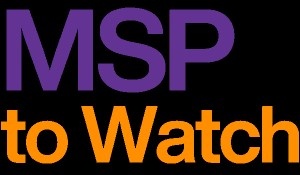 Understanding Shadow IT and Its Implications for Businesses
Understanding Shadow IT and Its Implications for Businesses
In today's fast-paced digital world, companies increasingly rely on cybersecurity services to maintain efficiency, flexibility, and competitiveness. However, unbeknownst to many business owners, employees might be inadvertently putting the company at risk. The culprit? Shadow IT solutions - a phenomenon where employees use unauthorized apps and software without IT department approval. This shadowy aspect of IT is one of the fastest-growing security threats businesses face today in Indianapolis and the broader Indiana area, often creating vulnerabilities that could lead to severe data breaches.
What Exactly is Shadow IT?
To comprehend the nuances of Shadow IT, it is vital to recognize its key characteristics. Essentially, Shadow IT encompasses any technology or software used within an organization without formal approval and oversight from the IT department. These unauthorized tools can range from personal Google Drives or Dropbox accounts used for company document storage, to unapproved messaging apps like WhatsApp or Telegram installed on company devices.
For businesses in Indianapolis, understanding the risks involved with Shadow IT is critical, as these solutions often bypass the security checks and balances enforced by local IT governance strategies, leaving companies vulnerable to data breaches and other cyber threats.
Why is Shadow IT a Ticking Time Bomb for Businesses in Indianapolis?
The act of using an unapproved app in the workplace might seem harmless, but this "invisible" practice can magnify vulnerabilities in business ecosystems, particularly for companies located in Indiana. As these tools operate without the knowledge or regulation of IT professionals, they pose several significant challenges:
- Unsecured Data Sharing: Employees using personal cloud storage or messaging apps can inadvertently leak confidential business information, making it easier for cybercriminals to intercept data.
- Lack of Security Updates: Unauthorized apps do not go through the routine checks, updates, and patches that sanctioned software does. As a result, these apps can become an easy target for hackers.
- Compliance and Legal Risks: Many businesses must comply with regulations like HIPAA, GDPR, or PCI-DSS, especially those offering cybersecurity services in Indianapolis. Using unapproved apps can lead to noncompliance, hefty fines, and potential lawsuits.
- Heightened Phishing and Malware Threats: Employees might unknowingly download apps that seem legitimate but contain malware or ransomware, a common issue for companies within 50 miles of Indianapolis.
- Potential for Account Hijacking: Unauthorized tools lacking robust security measures like multifactor authentication (MFA) can expose employee credentials, providing hackers with a gateway into company systems.
The Psychology Behind Shadow IT: Why Employees Engage
In Indianapolis and beyond, while it's easy to assume negligence is at the heart of Shadow IT, most employees use unauthorized apps with good intentions. Often, they are driven by the desire for efficiency, or are simply dissatisfied with existing company tools. Some might not even realize they are putting the company at risk, particularly if IT approval is perceived to take too long.
A striking example is the "Vapor" app scandal, which involved an intricate ad fraud scheme. Security researchers discovered over 300 malicious apps on the Google Play Store, masquerading as utility and health tools. Though downloaded over 60 million times, these apps served as a phishing platform, underlining how easily unauthorized apps can infiltrate and compromise organizational security.
External Link: Learn more about how these malicious apps operate from Google's security updates.
Mitigating Shadow IT: Proactive Strategies for Business Security in Indiana
To safeguard businesses from the potential dangers of Shadow IT within 50 miles of Indianapolis, adopting a proactive approach to IT governance is crucial. Here are strategies to anticipate and mitigate the impact of unauthorized apps:
- Craft an Approved Software List: Work closely with your IT department and local cybersecurity experts to draft a comprehensive list of vetted and secure applications.
- Restrict Unauthorized App Downloads: Introduce device policies prohibiting employees from installing unapproved software on company devices. Encourage them to seek IT approval for any new tool they wish to use.
- Educate Employees on Security Risks: Regularly train employees in cybersecurity, emphasizing that Shadow IT shortcuts can lead to significant security breaches.
- Monitor Network Traffic: Utilize network-monitoring tools to detect unauthorized software usage, allowing the IT team to promptly flag and address security threats.
- Enhance Endpoint Security: Implement Endpoint Detection and Response (EDR) solutions to monitor software usage and thwart unauthorized access.
Internal Link: For more insights on cybersecurity, check out our magazine on Cybersecurity.
Conclusion: Taking a Stand Against Shadow IT in Indianapolis
While Shadow IT presents a formidable cybersecurity challenge, adopting a strategic approach can help businesses in Indianapolis preempt and mitigate its effects. Regularly conducting a network security assessment can provide insights into unauthorized app usage, identify vulnerabilities, and strengthen your overall security posture before a data breach occurs. By proactively managing and addressing Shadow IT, companies can protect business assets and pave the way for a secure digital future in Indiana.











